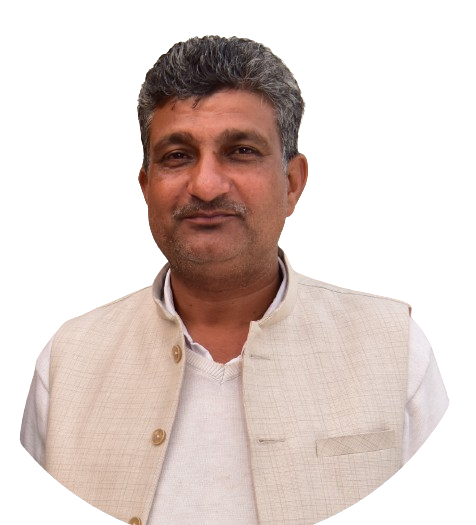
Chairman Message
The vision of TFPCL (Tarkha Farmers Producer Company Ltd) began with a challenge: Can we ensure a sustainable model of farming to our small-landholding farmers while also providing safe and quality food to the customers? Can we have a farmer, living a life of dignity who is able to provide well to his family, along with having a consumer who is ensured of getting safe and healthy food? Further, we have all witnessed how the rural communities are forced to migrate to urban localities but they fail to find a life of dignity even there as well. So, the question is can we imagine a self-sufficient scenario for the rural communities and link it organically with urban communities and bridge that gap? I have five find more challenges in agriculture produce marketing and High post-harvest loss of agriculture produce. This Problem was Solved with the help of the Farmer’s group. At first, we start a group at the village level. We find that the village level group is not a perfect solution to our problem The work began to take a definitive shape in 2018 with the formation of ‘Tarkha Farmers Producers Company Limited’ or just ‘TFPCL’ as it’s widely known. At TFPCL Farms, we have built world-class infrastructure and processing facilities that ensure we can work on a sufficient scale which is beneficial to both farmers and our consumers. We work hard to ensure that our farmers receive fair equity for their produce by building our entire effort around the values of Trust and Transparency. The movement was to also develop a first of its kind – branded, traceable product mix, that would promote sustainable growth. It would cater the best quality food products to our Indian Consumers at fair prices by achieving economies of scale and costs. This movement was driven by a Farmer – Producer model that plays an ever-increasing role in the rural economy today, providing gainful employment to large numbers of farmers and allied resources. The idea is to build crop-specific integrated value chains enabled by technology and efficient management. It was the formation of a structure, owned by farmers, and with the passage of time has become the farmers ‘best friend’.
Beyond this, to fulfilling the research gaps between the post-harvest management of crops and supply chains we are trying our best. To make farmers aware about the processing aspect of the crops we are giving the training, which will help the farmers to boost their income. Also, the various guidance programs are there to guide the youth which surely provides the exact path to build their career in the agriculture sector, eventually resulting in the building the strong future of Indian agriculture.